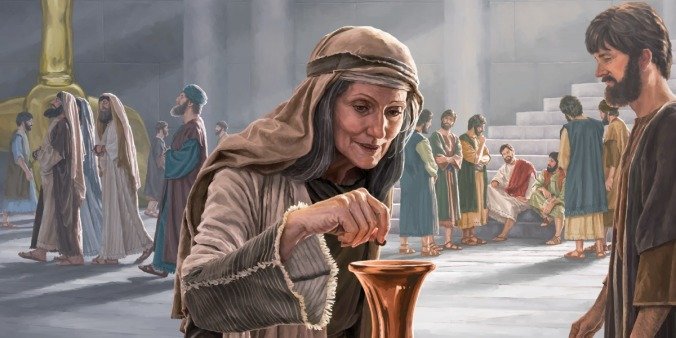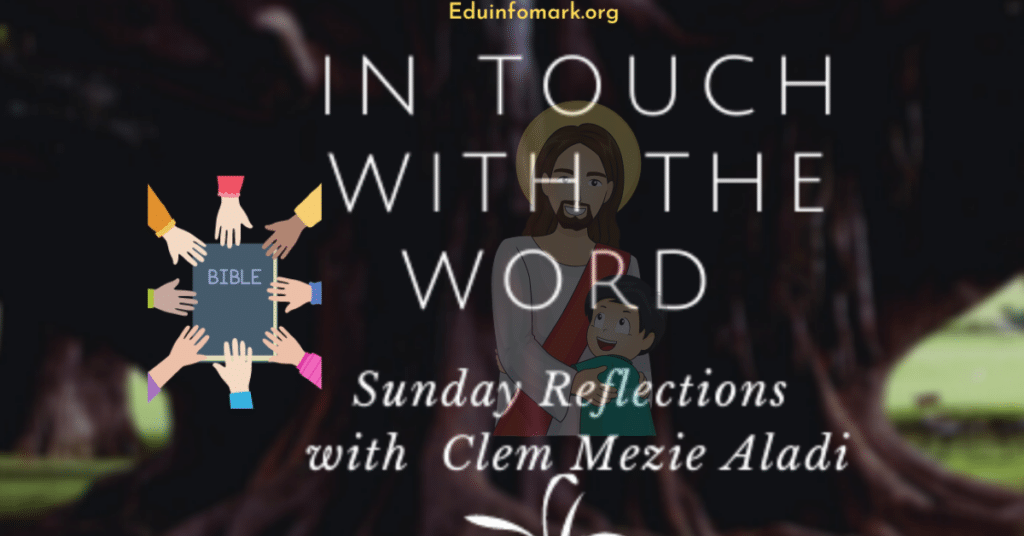
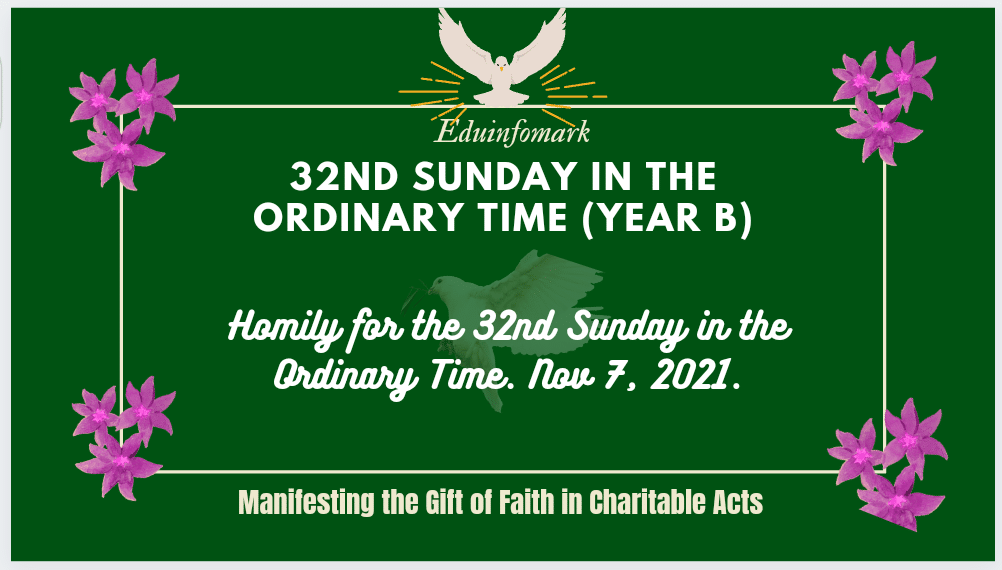
Sunday Readings
Contrary to our human standards, God determines the value of a gift by what the giver keeps, not what the giver gives.
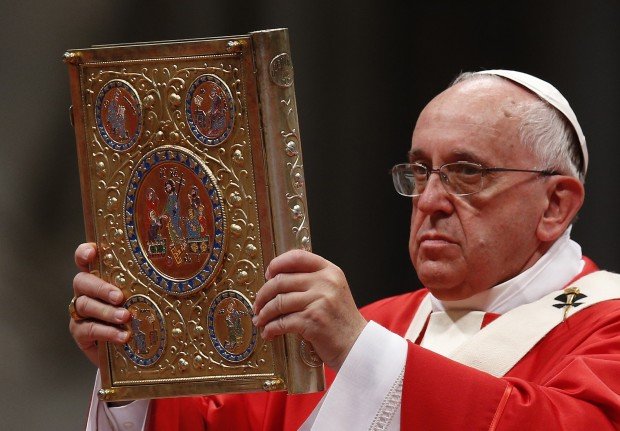
“Almsgiving above all else requires money, but even this shines with a brighter luster when the alms are given from our poverty. The widow who put in the two mites was poorer than any human, but she outdid them all.”
—St. John Chrysostom
My Dearest Friend,
May the Peace and Love of God fill and transform our lives as we gather around the Lord’s table to partake in this Eucharistic Banquet.
The readings of today remind us that God appreciates our little sacrifices and honors them with His Blessings. The readings invite us to live out our faith in total commitment to serving God and our neighbor with a humble and generous heart, free from fear of the unknown and prejudice.
The first reading and the Gospel today present poor widows who sacrificially gave their whole lives and means of livelihood to God, symbolizing the supreme sacrifice Jesus would offer by giving His life for others.
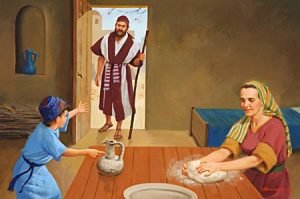
In the first reading, taken from the first book of Kings, a poor widow who has barely enough food for herself and her son, welcomes the prophet Elijah and shares the last handful of flour in her house with him. She had faith in Elijah’s words “Do not be afraid. Go and do as you propose. But first make me a little cake and bring it to me.” Many who are suffering in poverty today find it difficult to give up the little remaining for the good of another. Many also aren’t generous because they are afraid of running out of today what they might need tomorrow. Dear friend, it may seem impossible and foolish in our materialistic world to give out everything you need with which to live. However, the message is not about giving out all but giving with faith in God’s Providence even when you have nothing left. Never deprive others of the help they need from you today, just because you want to save it for tomorrow. It only takes faith to give up all you have to charity without any hopes of getting something but that’s the heroism of the faith of the two widows. You might be wondering why the widows are used as examples in these readings. They represent a class of people who are most in need of help due to lack of support. Yet even in their neediness, they were still generous.
In the Gospel, Jesus contrasts the external signs of honor sought by the scribes with the humble, sacrificial offering of a poor widow and declares that she has found true honor in God’s Eyes. The poor widows in both the first reading and the Gospel gave away all that they possessed for the Glory of God. The sacrificial self-giving of the widow in the first reading and that of the second widow in the Gospel reflect God’s love in giving His only Son for us and Christ’s Love in sacrificing Himself on the Cross.
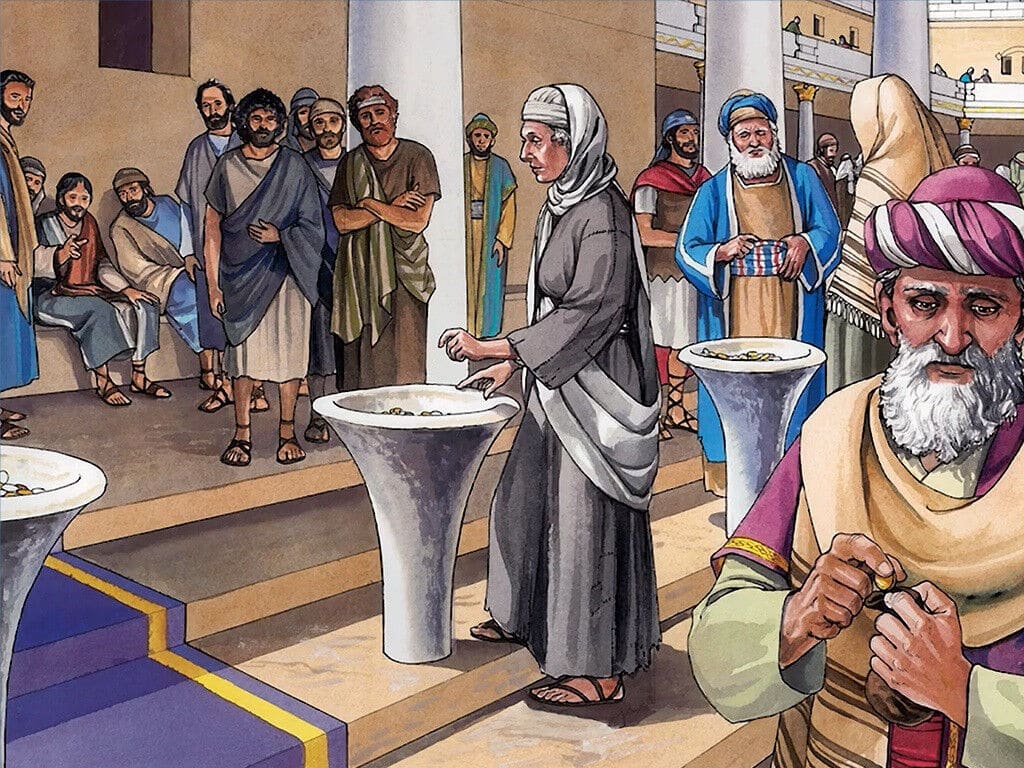
Last Sunday’s readings emphasize the centrality and inevitability of love in our Christian lives. The readings of this Sunday highlight instances of concrete examples of this love in the lives of these poor widows. God appreciates our little efforts and gifts. He does not look at the number of your gifts but the quality of your love. God determines the value of a gift by what the giver keeps, not what the giver gives. This is counter-intuitive, but that is God’s way, not ours.
As humans, we tend to praise those who contributed more. Usually we praise those who donated more without questioning the source of their donations. Those who defraud others to pay in God’s Temple may be praised in the eyes of men but their gifts are sinful in the eyes of God. Jesus applauded the widow in the Gospel because she gave all she had. She emptied her purse; she offered her whole livelihood. This is a perfect gift. Under the Mosaic law, no provisions were made for widows. They were left dependent partly on the affection of relations; particularly on the eldest son, whose birthright, or extra share of the property, imposed such a duty upon him. The loss of a husband in ancient Israel was equally a social and economic tragedy. This was the economic situation of widows in Israel. It was against this cultural and economic background that these widows demonstrated an extraordinary kindness to God through their selfless gifts which showed their absolute faith in God. This is the kind of gift that St. Mother Teresa described as “giving even when it hurts“. If today, like Ananias and Saphira, you decide to keep back what belongs to God or what should be given out in charity to those in need, you are indeed on the surest route to poverty and bankruptcy. As Christians, we have to appreciate those poor ones in our communities and churches who make contributions from their “nothing” because of their love for God and His Church. We have to appreciate and honor them because of their continuous kindness and generosity that demonstrates their faith in God and helps to sustain the Church. When we appreciate the little we receive from others we encourage them to give more.
In these hard times, many are going through financial difficulties of varying degree. Do we look at our circumstances and think we should give more or give less? When economic pressures threaten to smother us, do we close the purses/wallets tighter or do we open them wider? God is not in any way asking us to empty all we have at the collection box, nor into the hands of others because He knows we have bills to pay. The question is, are we ready to offer what matters most to us to solve the problems of others or encourage missionary works in the Church ? The woman of Zarephath welcomed Elijah and in faith offered all she had, believing in God’s Providence. In this wonderful gesture of love and faith, the saying that “givers never lack” is a truism. God is faithful to His promises. “Your jar shall never go empty nor the jug of oil run dry.” You may call the actions of these widows heroic but their heroism lies in that faith that propelled them to give all they had without worrying about tomorrow or counting the cost. When faith is at work human logic is void.
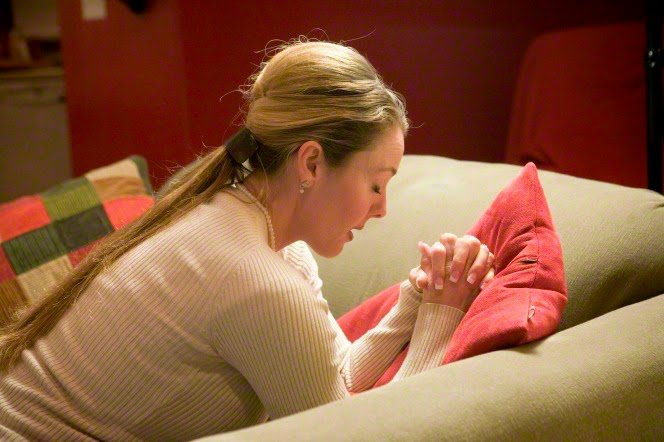
A sincere life of prayer inspires charity.
May God to enkindle in us the spirit of generosity and love towards His Church and our fellow human beings. I keep you always in my prayers. ©2021

